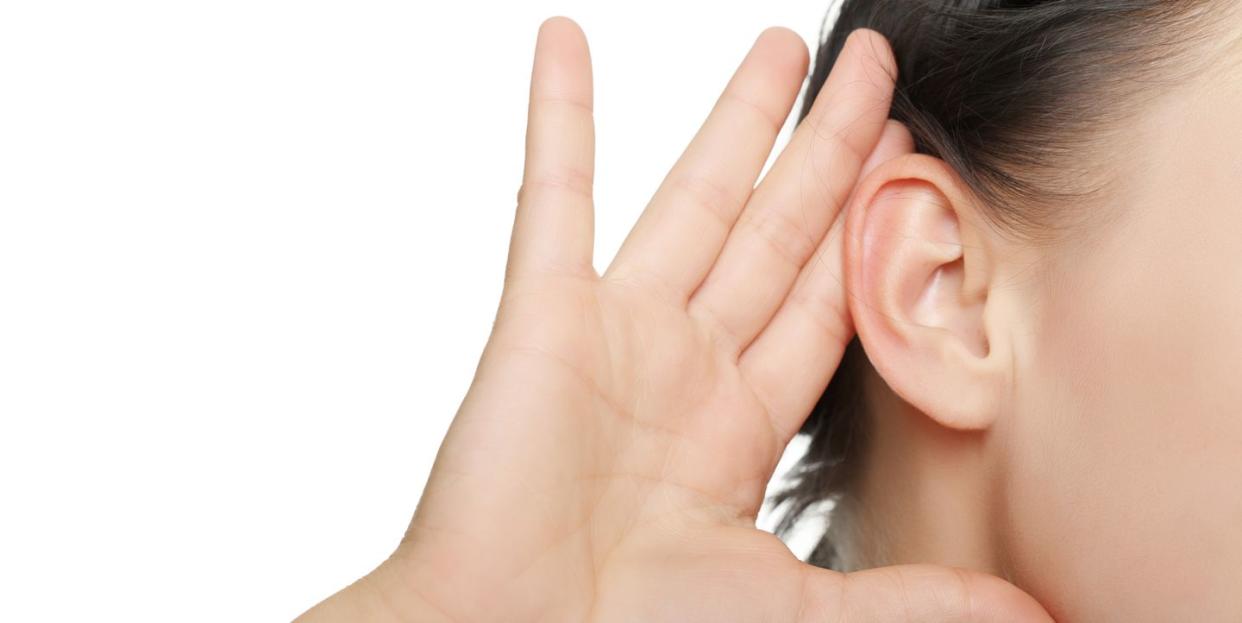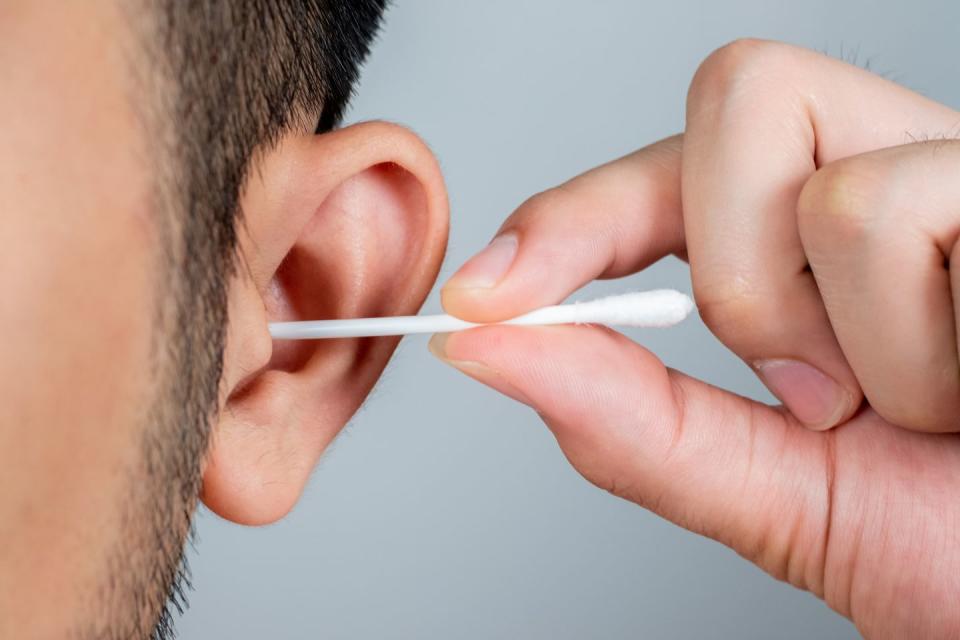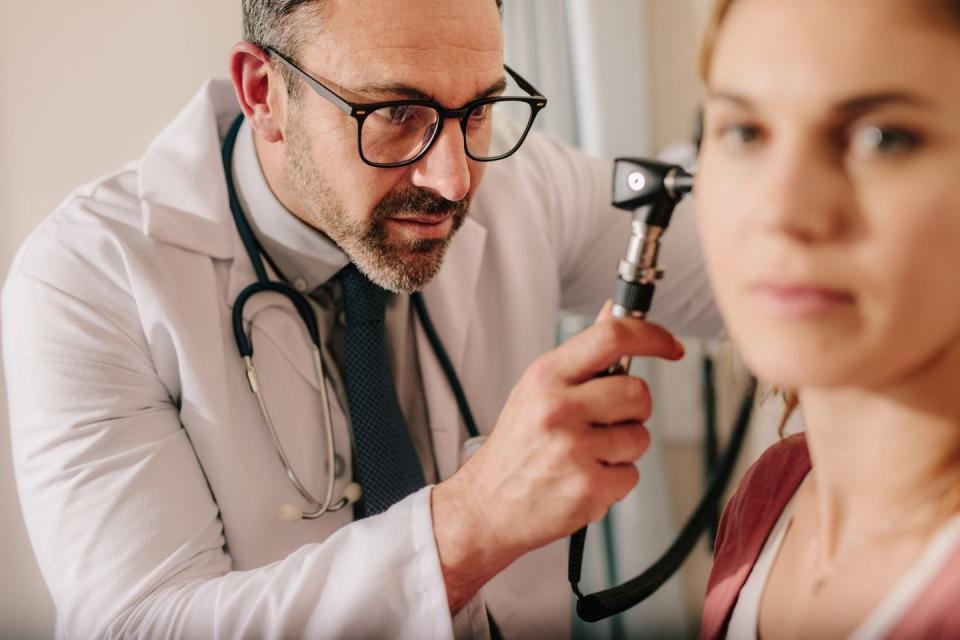5 reasons you can hear a popping or crackling sound

Can't work out where that strange popping or crackling sound in your ears is coming from? Unusual noise in your ears could be a normal release of pressure, but may also be due to a number of factors including eustachian tube dysfunction, acute otitis media, earwax build up or even a joint disorder.
We spoke to Mr Ananth Vijendren, Consultant Otologist and ENT Surgeon at Highgate Private Hospital and Peter Monksfiel, Consultant ENT and Skull Base Surgeon from Spire Parkway Hospital, Solihull, about crackling ear causes, treatment tips and when to see your doctor:
What causes crackling in your ear?
A number of things can lead you to experience a popping or crackling sound in your ears. The following are the 5 most common causes of ear crackling:
1. Eustachian tube dysfunction
Eustachian tube dysfunction (ETD) is a common condition, usually as a result of a cough or the common cold, where the tubes connecting the ear and the nose do not function optimally and this can cause the ears to crackle.
Blocked eustachian tubes can also cause pain, hearing difficulties, and a feeling of fullness in the ears. By why the strange crackling sound? ‘The eustachian tube connects the middle ear (space behind the ear drum) with the nose,’ explains Monksfield. ‘Its function is to equalise the pressure in the middle ear and allow air to enter. To do this, it periodically opens usually when swallowing, yawning or blowing the nose. It causes a pop or crack in the ear when it does this and this is normal.'
However, sometimes the eustachian tube becomes blocked, for example if you have a cold and mucous fills the tube. The air pressure is unable to equalise and the result is a build-up of pressure in the ear. The combination of trapped mucous and pressure causes a crackling or popping sound when you talk, swallow or blow your nose.
But what causes EDT? While it is usually as a result of an upper respiratory tract infection or a cold, it can have other causes. 'EDT is common in children due to the anatomy of the tubes themselves, although most children grow out of it,' says Vijendren. 'In adults, it’s usually caused by chronic nasal conditions, distorted anatomy of the head and neck, and also environmental factors such as smoking and allergens in the air. This causes crackling as it results in poor ventilation of the middle ear which also leads to glue ear (fluid in the middle ear) or chronic otitis media.'
Sometimes people suffering from ETD also experience deafness. This is usually temporary and is caused by the ear drum becoming stiff as a result of increased pressure. The ear drum is therefore unable to move when a sound wave hits it and so sound becomes muffled. The good news is ETD is a relatively common condition and depending on the cause, it may resolve on its own or through simple at-home treatment measures.

2. Acute otitis media
Acute otitis media is an infection of the middle ear that can cause you to experience a popping or crackling sound. ETD often contributes to the development of acute otitis media, as fluid can accumulate in the middle ear when the tubes are blocked and this then becomes infected.
'Acute otitis media causes crackling through a build up of infected fluid and also from poor ventilation of the middle ear that becomes infected.' says Vijendren. 'Common causes are viral, although there can also be bacterial infections.'
Anyone can develop a middle ear infection, but babies and young children tend to be more susceptible.
3. Earwax build up
Earwax build up is a common issue than can cause unusual popping or crackling sounds in the ears.
'All ears build up wax,' explains Vijendren. 'Some ears are more efficient at clearing them away hence they do not accumulate. In some ears however, the wax builds up and causes an obstruction of the ear canal, which can cause it to crackle. This is commonly the sound of the wax squelching.'
⚠️ Earwax build up often occurs when people use a cotton bud to clear out their ears and actually end up pushing the earwax deeper into the ear canal, creating a blockage.
4. Temporomandibular joint disorders
Temporomandibular joint (TMJ) disorders refer to an issue with the jaw joint, which articulates within the ears.
'It can either be an issue with the ligaments and muscles of the joint or occasionally the bony articulations themselves, a bit like arthritis of the jaw joint,' says Vijendren. 'It crackles when you open and close the mouth as the movement causes friction and sounds to be transmitted to the ears.'
5. Middle ear myoclonus
Middle ear myoclonus (MEM) is a rare type of tinnitus that is commonly characterised by a tapping sound, caused by involuntary contractions of the muscles within the middle ear.
'There are two muscles which can be affected: stapedius and tensor tympani,' says Vijendren. 'They usually arise in response to loud sounds but can also be spontaneous. But they tend to cause tapping rather than crackling sounds.'
What is the crackling noise?
The popping or crackling sound in your ears is likely due to a pressure equalisation and movement of the ear drum, and is usually nothing to worry about. ‘It is normal for this to happen,' says Monksfield. ‘It can affect your hearing but most often this recovers over a few days or weeks after a cold.'
Ear crackling can be present for many months though. 'It can even last for years and for a very small proportion of people, there may be permanent damage to the ear drum,' says Monksfield. 'Excessive crackling accompanied by hearing your voice loud in the ear or hearing your breathing suggests another condition called Patulous Eustachian tube.’
If you experience prolonged crackling or popping sounds in your ears or have any concerns at all, make an appointment with your GP who may refer you to an ENT specialist for further investigation.

Crackling ear treatment tips
Treatment depends on the cause, but crackling ear is often easily treatable with over-the-counter remedies. Monksfield recommends the following treatment tips for crackling ears:
✔️ Forced exhalation
Try to pop the ears with a forced exhalation with closed mouth and nostrils.
✔️ Nasal decongestant
Take a short course of nasal decongestant for up to one week.
✔️ Nasal steroid spray
Try a longer course of nasal steroid spray.
✔️ Grommet insertion
Speak to your GP about grommet insertion. Grommets are tiny tubes that can be inserted into the eardrums to treat certain conditions.
✔️ Endoscopic balloon dilatation
Your doctor might also consider endoscopic balloon dilatation. This procedure involves having a balloon inserted into your nose and inflated in order to open up the eustachian tube and resolve clogged ears.
Crackling ear prevention tips
To prevent crackling or popping ears, try the following 5 prevention tips:
Stay healthy: eat your five-a-day, exercise regularly, wash your hands frequently and avoid sick people to stay in tip-top health.
Quit smoking: smoking can lead to or exacerbate ETD so quit your habit today.
Sidestep cotton buds: using cotton buds to clear out earwax build up can create a blockage so ditch the buds.
Use ear protection: if you're going to a loud concert or work in a noisy environment, invest in some quality ear protection to prevent ear damage.
Avoid allergens: if you're susceptible to hay fever or have any allergies, avoid your triggers to minimise ETD.
When to see your GP about crackling ears
Occasional popping and crackling in your ears is normal, but there are situations when you should see your GP for an assessment.
Make an appointment with your GP if any of the following occurs:
Your symptoms have persisted for more than a few weeks
You experience dizziness
You feel nauseous
You have a high temperature
You have a blood stained or smelly discharge from your ear or nose
You have sudden onset or rapidly worsening hearing loss
'If crackling in your ears persists, it is worth seeing your doctor or an ENT surgeon to diagnose and treat accordingly,' recommends Vijendren.
Last updated: 11-03-2021
You Might Also Like

